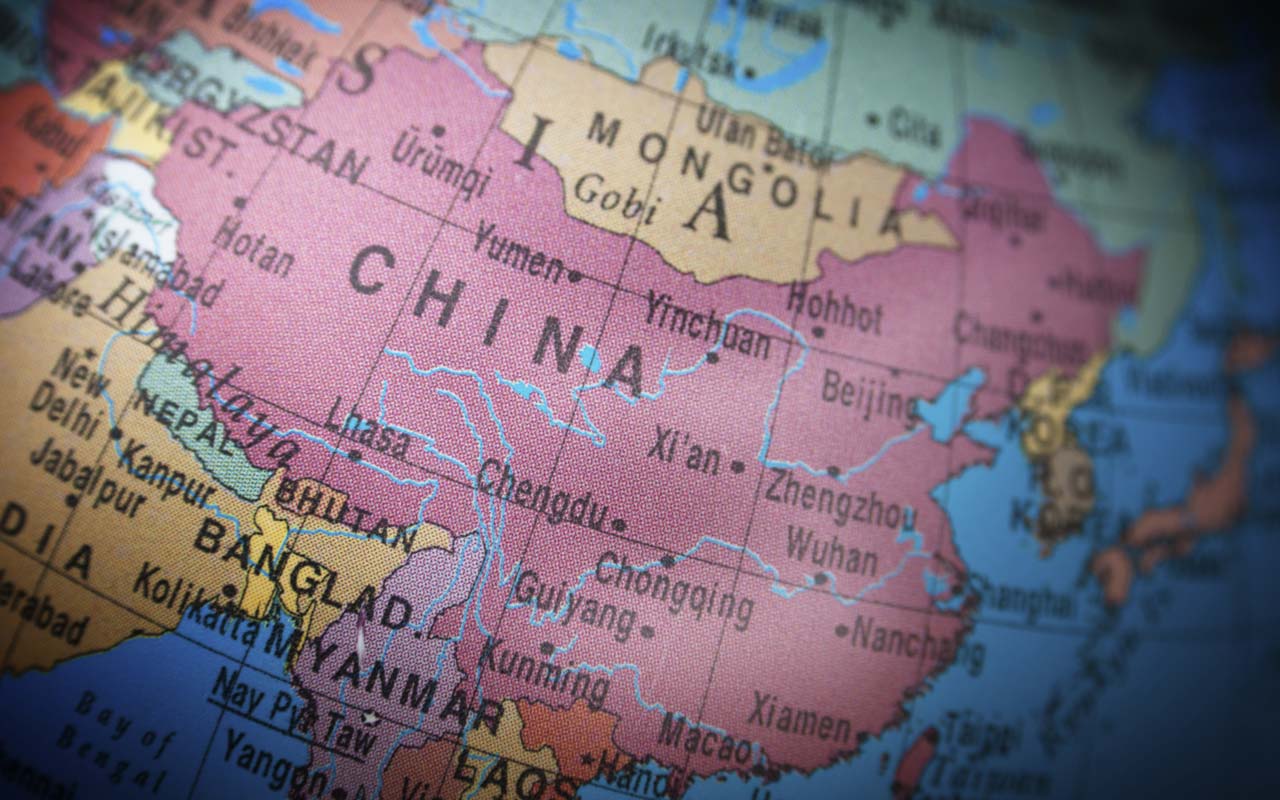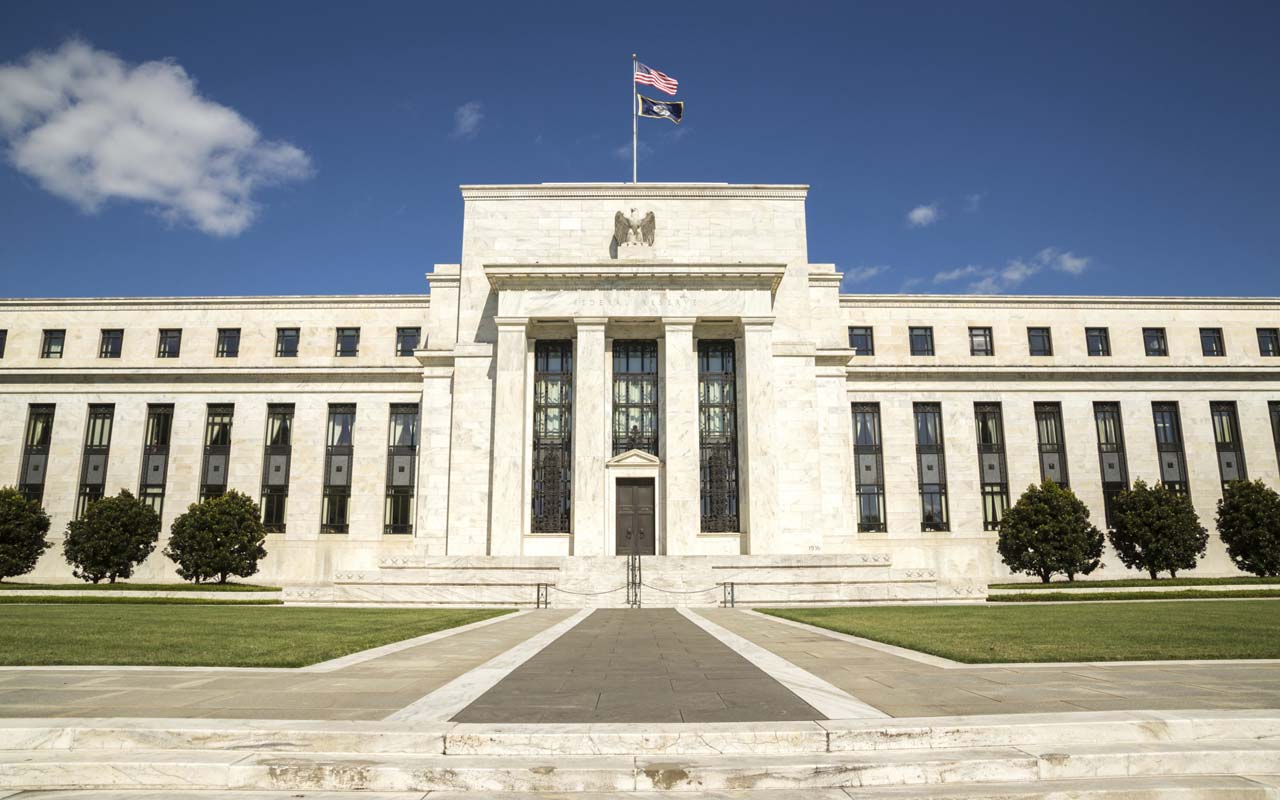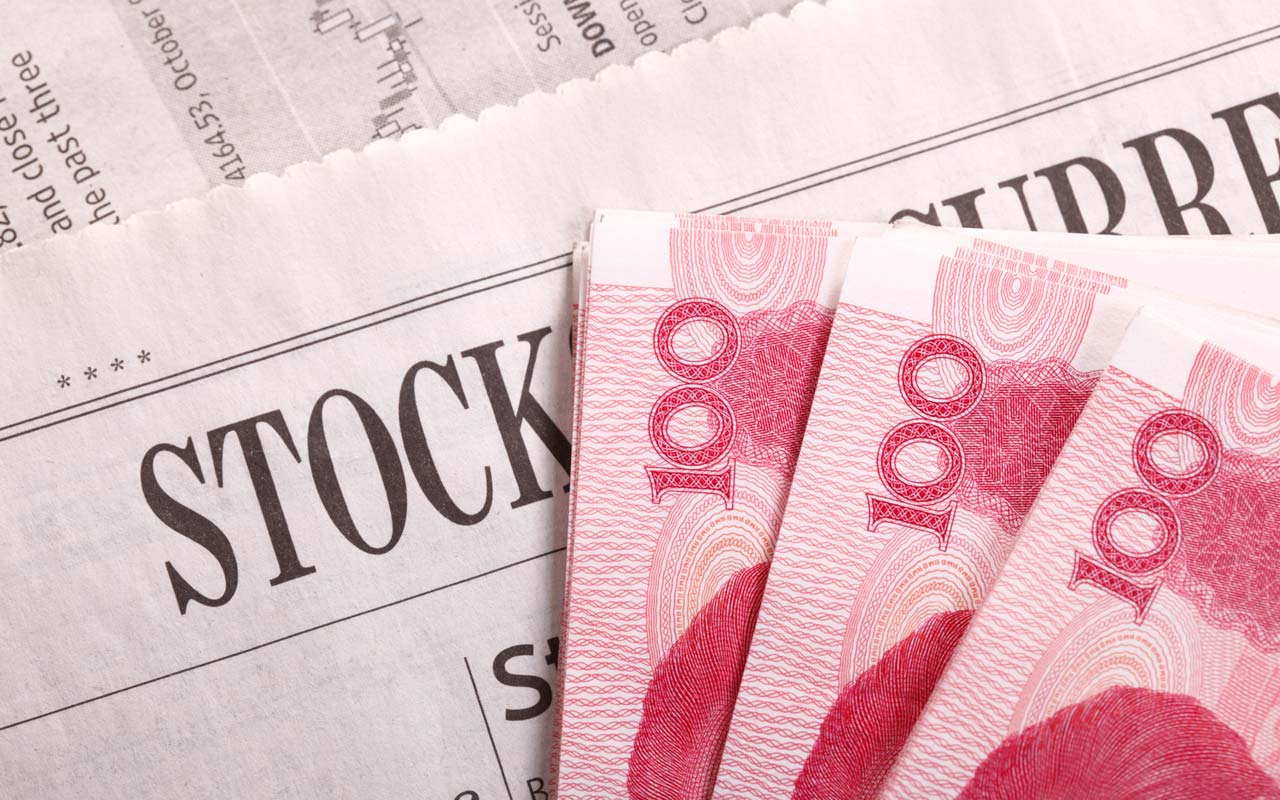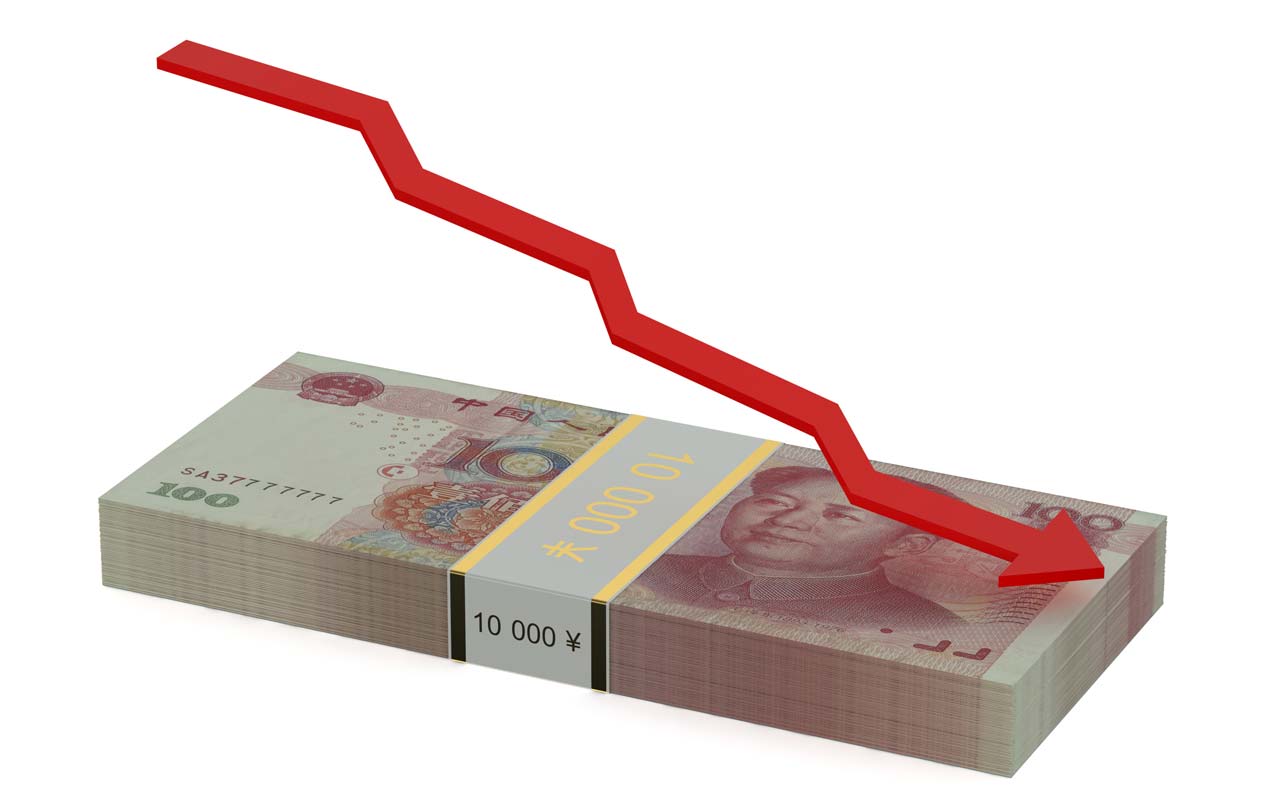6 Reasons Not to Fear a China Slowdown
Does a falling currency signal that China’s economy is in trouble?

Profit and prosper with the best of Kiplinger's advice on investing, taxes, retirement, personal finance and much more. Delivered daily. Enter your email in the box and click Sign Me Up.
You are now subscribed
Your newsletter sign-up was successful
Want to add more newsletters?

Delivered daily
Kiplinger Today
Profit and prosper with the best of Kiplinger's advice on investing, taxes, retirement, personal finance and much more delivered daily. Smart money moves start here.

Sent five days a week
Kiplinger A Step Ahead
Get practical help to make better financial decisions in your everyday life, from spending to savings on top deals.

Delivered daily
Kiplinger Closing Bell
Get today's biggest financial and investing headlines delivered to your inbox every day the U.S. stock market is open.

Sent twice a week
Kiplinger Adviser Intel
Financial pros across the country share best practices and fresh tactics to preserve and grow your wealth.

Delivered weekly
Kiplinger Tax Tips
Trim your federal and state tax bills with practical tax-planning and tax-cutting strategies.

Sent twice a week
Kiplinger Retirement Tips
Your twice-a-week guide to planning and enjoying a financially secure and richly rewarding retirement

Sent bimonthly.
Kiplinger Adviser Angle
Insights for advisers, wealth managers and other financial professionals.

Sent twice a week
Kiplinger Investing Weekly
Your twice-a-week roundup of promising stocks, funds, companies and industries you should consider, ones you should avoid, and why.

Sent weekly for six weeks
Kiplinger Invest for Retirement
Your step-by-step six-part series on how to invest for retirement, from devising a successful strategy to exactly which investments to choose.
Does a falling currency signal that China’s economy is in trouble? Possibly. China’s long era of torrid GDP growth is clearly coming to an end. What isn’t known: Whether the slowdown will be gradual enough not to disrupt the global economy, which has long relied on China for growth, or abrupt and a threat to world markets.
We at Kiplinger think that the Chinese economy will sputter more but won’t flame out. Beijing’s official growth rate of 7% is almost certainly inflated to keep up appearances. Construction and manufacturing—key components of Chinese growth—are slowing. But the government still has trillions of dollars available to gin up infrastructure work and other projects to avoid a steep drop in activity, and it’s willing to spend the money.
Here are six reasons not to fear a China economic slowdown:

U.S. Exposure to China Is Limited
U.S. exports of goods and services to China are expected to decline by 5% this year compared with 2014. While important to those firms that sell to China, this represents less than 0.1% of U.S. GDP.
U.S. banks have loaned $100 billion to Chinese firms, but this is less than 1% of the banks’ $15 trillion in assets.
- U.S. firms have invested $66 billion in Chinese operations, but this is only 1% of their total investment abroad of $6 trillion.

Cheaper Imports Will Moderate Fed Rate Hikes
- Cheaper Chinese imports will help keep U.S. inflation at its current, moderate pace.
- No matter what the Fed decides to do with short-term rates, long-term rates won’t rise very much. A weaker global economy will keep a lid on Treasury bond yields and mortgage rates, and give borrowers a chance to nab friendlier terms on all sorts of loans.
Will the Federal Reserve still raise short-term rates this fall? Odds are it will. The Fed wants to end the era of 0% rates and is eyeing a quarter-point hike in September. But the prospect of milder inflation for longer should help delay the push to raise rates quickly.

China’s Stock Market Is Relatively Small
Why didn’t the 28% swoon earlier this summer in China’s stock market, after a startling 113% increase in stock prices since last November, have more of a global impact? Because China’s market is relatively tiny compared with those of the U.S. and Japan. Most Chinese citizens keep their money in the bank rather than in the stock market, and the banks, which finance much of the economy, are owned by the government.
- Is a volatile Chinese stock market evidence that China’s shift to a consumer-driven economy is failing? Not at all. An expected dip in growth has already started and will continue. Market weakness will hasten that decline, but only a bit: For 2015, Kiplinger forecasts 6.5% growth for China instead of 6.9%. We see only a minimal tick down for global growth this year, from 3.1% to 3%. And no change at all in the U.S.: We still see 2.5% growth for the full year.

Lower Gas Prices
Commodities will bear the brunt of China’s slowdown. Prices of oil, copper, iron ore and other raw materials rose in recent years as Chinese demand soared. Now prices are at multiyear lows and won’t recover much until 2016 at the earliest. Domestic oil and gas prices will remain depressed as well. That’s good news for U.S. consumers but could produce disappointing earnings for investors in big oil stocks and in makers of energy extraction equipment.
Some big U.S. multinationals will face pressure, too. Apple, Ford and Procter & Gamble, for example, are heavily invested in China. But U.S. markets overall will barely blink. Bottom line: Some bumps ahead, but no need to change your business plans.

Worst Is Over for China Housing
Home prices are up in China’s largest cities and are starting to show modest improvement elsewhere.
- Despite tough times, China was never headed for a U.S.-style housing bust. Mortgages are much tougher to get in China, and down payments are typically 30%. Residential mortgages aren’t as big a factor in the banking system--just 6% of financial system assets, compared with 18% in the U.S. during the housing boom. And because mortgage loans aren’t securitized and sold to investors in China, its financial sector isn’t especially vulnerable to a housing meltdown.
- What about the rows of empty buildings in so-called ghost cities everyone has heard so much about? Think of them as a party before the guests arrive. In China, developers don’t add to existing cities or fill in empty spaces within them. They start from scratch in new cities, building infrastructure and thousands of units at once, many of them presold. 75% of private housing sales are of unfinished houses. No one wants to move in first, so the government often gets the ball rolling by relocating government-controlled banks, agencies and universities to new cities.

Trans-Pacific Partnership: Still a Go
- What does the yuan’s devaluation mean for the Trans-Pacific Partnership, the proposed U.S. trade deal with Asian countries that China might one day join? Opposition in Congress will ratchet up, but not enough to torpedo a deal. Critics will insist that any agreement include language barring currency devaluations that could give one country an export edge. China’s decision to devalue the yuan has stoked fears that other countries could follow suit to boost their exports. But Japan and other signatories won’t accept any binding penalties for such policies. Congress won’t vote on the TPP before December, when currency markets should be calmer.
Profit and prosper with the best of Kiplinger's advice on investing, taxes, retirement, personal finance and much more. Delivered daily. Enter your email in the box and click Sign Me Up.
-
 How Much It Costs to Host a Super Bowl Party in 2026
How Much It Costs to Host a Super Bowl Party in 2026Hosting a Super Bowl party in 2026 could cost you. Here's a breakdown of food, drink and entertainment costs — plus ways to save.
-
 3 Reasons to Use a 5-Year CD As You Approach Retirement
3 Reasons to Use a 5-Year CD As You Approach RetirementA five-year CD can help you reach other milestones as you approach retirement.
-
 Your Adult Kids Are Doing Fine. Is It Time To Spend Some of Their Inheritance?
Your Adult Kids Are Doing Fine. Is It Time To Spend Some of Their Inheritance?If your kids are successful, do they need an inheritance? Ask yourself these four questions before passing down another dollar.
-
 Trump Reshapes Foreign Policy
Trump Reshapes Foreign PolicyThe Kiplinger Letter The President starts the new year by putting allies and adversaries on notice.
-
 Congress Set for Busy Winter
Congress Set for Busy WinterThe Kiplinger Letter The Letter editors review the bills Congress will decide on this year. The government funding bill is paramount, but other issues vie for lawmakers’ attention.
-
 The Kiplinger Letter's 10 Forecasts for 2026
The Kiplinger Letter's 10 Forecasts for 2026The Kiplinger Letter Here are some of the biggest events and trends in economics, politics and tech that will shape the new year.
-
 What to Expect from the Global Economy in 2026
What to Expect from the Global Economy in 2026The Kiplinger Letter Economic growth across the globe will be highly uneven, with some major economies accelerating while others hit the brakes.
-
 Amid Mounting Uncertainty: Five Forecasts About AI
Amid Mounting Uncertainty: Five Forecasts About AIThe Kiplinger Letter With the risk of overspending on AI data centers hotly debated, here are some forecasts about AI that we can make with some confidence.
-
 Worried About an AI Bubble? Here’s What You Need to Know
Worried About an AI Bubble? Here’s What You Need to KnowThe Kiplinger Letter Though AI is a transformative technology, it’s worth paying attention to the rising economic and financial risks. Here’s some guidance to navigate AI’s future.
-
 Will AI Videos Disrupt Social Media?
Will AI Videos Disrupt Social Media?The Kiplinger Letter With the introduction of OpenAI’s new AI social media app, Sora, the internet is about to be flooded with startling AI-generated videos.
-
 What Services Are Open During the Government Shutdown?
What Services Are Open During the Government Shutdown?The Kiplinger Letter As the shutdown drags on, many basic federal services will increasingly be affected.
